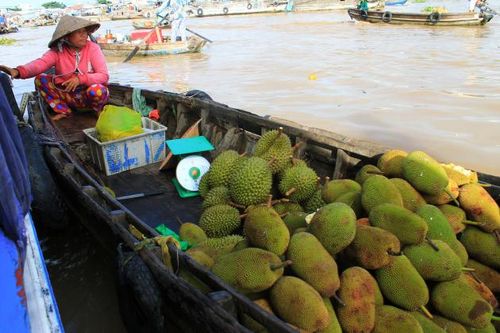In Vietnam, management of wildlife diseases has garnered attention from both the State and the public. This is evident through a comprehensive system of regulations addressing diseases that can be transmitted from wildlife to humans spanning a range of documents, from laws to decrees and circulars. However, despite these efforts, the practical implementation of wildlife disease management still encounters numerous challenges and shortcomings.

Vietnamese plea to Thailand: Don’t divert the Mekong
PEOPLE in Vietnam hope Thailand will reconsider its plan to divert water from the Mekong – because it would seriously affect their ability to produce food.
The Mekong Delta is Vietnam’s most important agricultural area. Each year, the area produces the most rice and fruit in the country. This region also nurtures many freshwater fish species, which are an important source of protein for local people.
However, this key food production could be jeopardised by large water management projects upriver, Vietnamese experts have warned.
Prime Minister Prayut Chan-o-cha voiced plans to use water from the Mekong and Salween rivers to fill dams that have run low because of drought and poor water management. But the PM’s remarks have caused shockwaves in the Mekong Delta, which would be directly affected if such a project was to go ahead.
Nguyen Huu Thien, a freelance expert on wetland ecology and natural resource conservation, criticised the idea. He said taking a large amount of water out of an international river was like sucking the blood from a body and would surely hurt the livelihood of people downstream.
“I just heard of Thailand’s idea to divert water from the Mekong River. I still don’t have much information about the plan but I strongly oppose this idea, as a change in the amount of water in the river would definitely have an impact on the people who live in the Mekong Delta and who rely on the river,” Thien said.
Thien, who is based in Can Tho, a city in the delta, said extensive use of water upstream had already reduced the river’s flow. This had caused many problems such as greater saltwater intrusion, environmental degradation and drought. If Thailand’s idea was implemented, more severe impacts would follow.
Ky Quang Vinh, director of Can Tho City Climate Change Coordination Office, was similarly worried. He said the project would change the water flow of the Mekong.
“The project would divert water from the river, which would decrease the amount of water in the delta, especially in the dry season, when the water level is normally low. This would directly impact farmers in the delta and thus the food basket of Vietnam,” Vinh said.
Duong Van Tho, an environmental activist from People and Nature Reconciliation, said saltwater intrusion and sediment reduction would be key problems if project goes ahead.
Tho said reducing the river’s volume would see saltwater intruding further inland. It would destroy crops such as rice, which cannot tolerate the salt. And sediment loss would cause river erosion and affect the river’s biodiversity, having a huge impact on many people who depend on rice and fish.
“Any effort to divert water from the Mekong would only benefit Thailand, but people in Vietnam, downstream of the river, would have to pay a high price, as the farmers and fishermen would suffer a lot,” he said. Hieu, a fish trader in Can Tho, said he was worried by Thailand’s plan to take water from the Mekong.
“I am concerned that this project, along with dams upstream, will decrease the fish stock in the river. If we cannot rely on fishing anymore, I may have to change jobs,” Hieu said.
Li Quan Ba, the manager of Tan An fish market, said people downstream would be seriously affected.
“I want to ask the country up there to carefully consider the project, as it would affect many lives [here],” Ba said.




